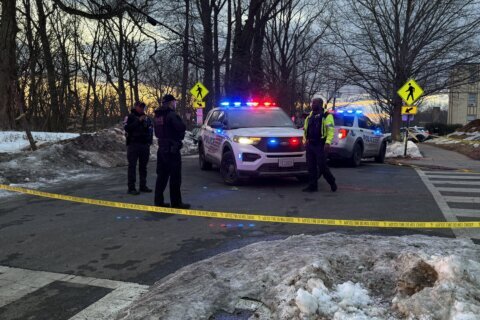U.S. Transportation Secretary Pete Buttigieg is telling the leadership of the D.C. Metro and other transit agencies struggling financially due to a deep drop in ridership during the pandemic that the federal government is ready to help.
Metro General Manager Randy Clarke recently sounded the alarm in an interview with WTOP, warning of possible deep service cuts next summer if the D.C. transit agency does not close its $700 million dollar budget shortfall.
Clarke said instead of trains running at eight-minute intervals, the schedule would be cut to intervals of up to 30 minutes between trains, and the agency would lay off numerous workers.
Buttigieg said he wants to help.
While on the one hand saying the Department of Transportation does not want to make decisions that abridge local leaders, Buttigieg told WTOP that the federal government would have money in the upcoming year’s DOT budget to assist mass transit agencies.
“There are flexibilities in the budget that we’re putting forward right now on Capitol Hill to help transit agencies, whether the current circumstances they’re in and get to the other side, where there can be a better future for everybody,” Buttigieg said.
The secretary said transit agencies are still navigating the post-pandemic environment that’s seen slumping ridership numbers, impacting farebox revenue.
“Transit leaders are being faced with some tough choices right now. And that’s why we’re trying to take some of the pressure off that has them considering these cuts in the first place, with both the historic funding for new and better capital for the future and the flexibility that can help them operate in the meantime,” he said. “So, we’re not telling transit leaders what to do as they face these tough choices. We are trying to have their back.”
During the pandemic, money from the federal government helped keep Metro and other transit agencies running as ridership plunged. Metro’s general manager said he’s confident the transit agency will get the money it needs because the service cuts would have a devastating impact on traffic congestion in D.C., Virginia and Maryland and create severe congestion.
Call for tighter railroad safety requirements
On a separate topic, more than three months after the East Palestine, Ohio train derailment, freight carrier Norfolk Southern said it had spent $400 million cleaning up the site and assisting residents with medical bills and other expenses.
Buttigieg said Congress should pass bipartisan legislation, introduced after the derailment, that would tighten safety requirements for freight railroads.
“This Railway Safety Act would do something about that, and it contains many of the measures that I called for in the wake of what happened in East Palestine,” he said. “It’s not perfect; it doesn’t have everything that we called for. But the version that I saw has many things that would make a big difference in holding the railroads accountable. I hope it remains strong, that it advances to the floor and that it gets to the president’s desk because as soon as those tools are placed in our hands by Congress, we as a department will take them and use them to make railroads safer in America.”
The secretary also again expressed concerns over the rising number of people who are being killed on America’s highways, with more than 100 people a day dying as a result of speeding, distracted driving, drug and alcohol abuse, poor decision making or a mechanical failure in their vehicle that causes a crash.
“We have to act on this. And this country ought to be up in arms about the loss of life on our roadways,” Buttigieg said. “We would never tolerate anything close to this level of deaths and injuries in any other mode of transportation, railroads, airplanes; you name it. We’re talking about more than 100 people losing their lives every single day, to say nothing of the injuries that happen. All of us know people we care about who lost their lives in roadway crashes. We can’t tolerate this level of carnage. That’s the only word for it on our roads.”
According to the National Traffic Highway Traffic Safety Administration, 42,795 people lost their lives on U.S. highways and roads in 2022, a fractional decrease from 2021.
In the D.C. area, it’s estimated that 313 people were killed in vehicle-related crashes, and the fatality rate is the highest in 15 years, even as local governments are stepping up traffic enforcement, conducting educational campaigns and spending millions on new infrastructure projects to make roads safer.
The full interview with Secretary Buttigieg is available at TTNews.com.








